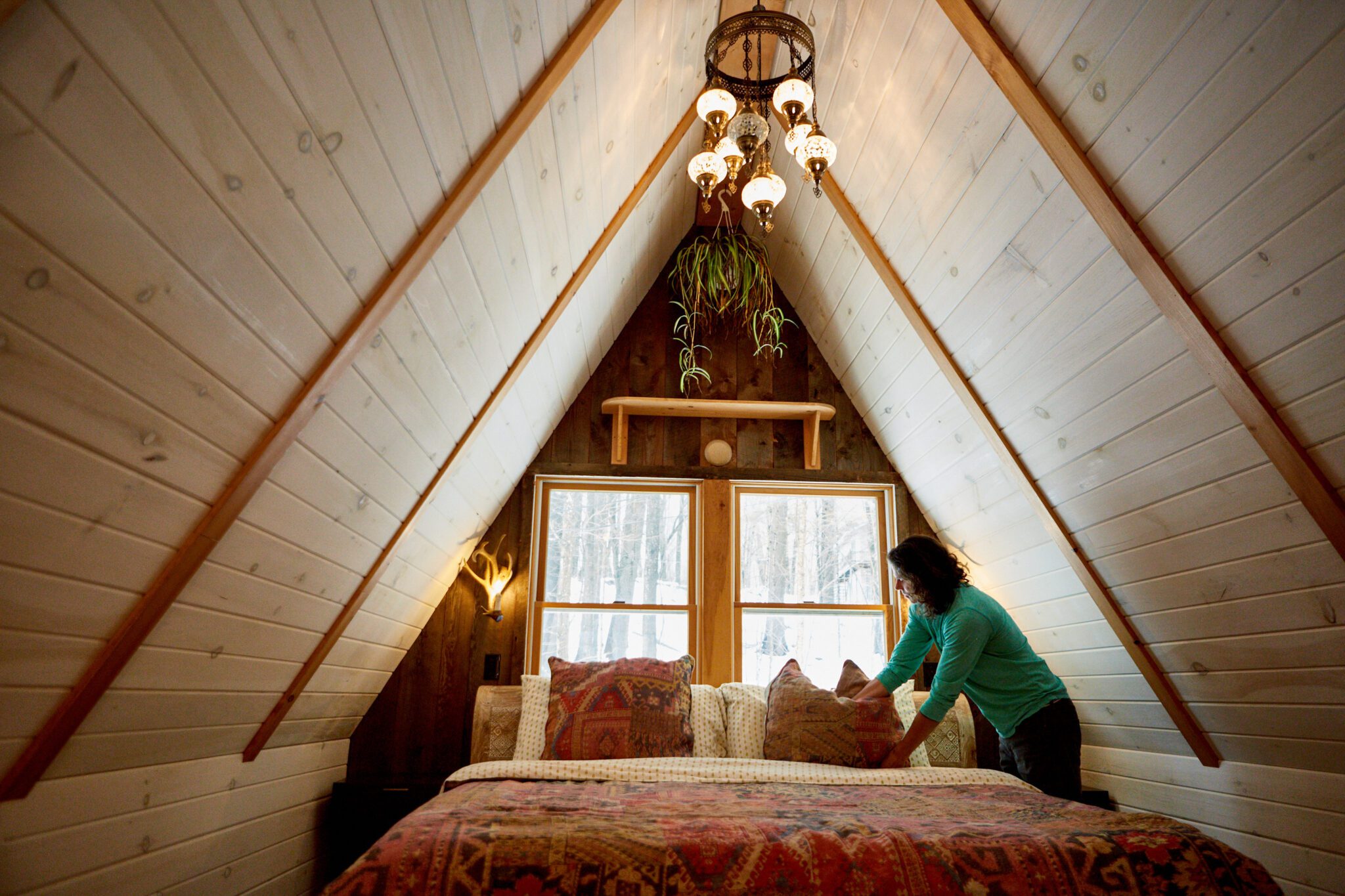Is Airbnb leaving money on the table, and could it generate more revenue by hiking host fees and introducing sponsored listings?
A BTIG research report published earlier this week runs through these Airbnb “bull” scenarios.
“A key plank to an ABNB bull case is the potential for take-rate to move higher and one way to do that would be to step-up host fees,” says the report, which was written by Jake Fuller and Kevin Dolan.
Host Fees at 3%
The report notes that Airbnb collects around 13% in fees on average, with around 3% from hosts and 10% from guests. The bulls, according to the report, argue that Airbnb could raise those host fees from approximately $4 per night to $6.50 per night – around 4.8% of the booking.
That would produce an additional $1.3 billion in annual revenue, BTIG said.
One major problem, though, is that such a fee hike would create an uproar among hosts, and competitors could benefit if they kept their own fees low. In addition, hosts might then increase the nightly rates they charge guests.
Higher fees would come as big online travel agencies, such as Expedia and Booking.com, have been busy trying to lure customers via discounts.
“Take-rate has only gone in one direction in travel and it has not been up,” the BTIG report said. “We’ve watched take-rate come down over time in air and hotel. We aren’t sure why short-term rentals should be different.”
Would Sponsored Listings Disadvantage Individual Hosts?
Airbnb watchers have been intrigued by the prospect of Airbnb introducing sponsored listings ever since CEO Brian Chesky floated the idea in March. At the time, Skift Research estimated that Airbnb could generate an additional $1.2 billion in annual revenue from sponsored listings by 2026 if it debuted them in 2024.
The BTIG report pegged that number at about $550 million to $1.1 billion annually in the next five years, noting that Expedia generated around $400 million in ad revenue in 2022, and Uber’s relatively new sponsored listings operate at a $650 million annual run rate.
“While an interesting opportunity, ABNB has spoken cautiously about implementing sponsored listings as it could potentially disadvantage individual hosts in favor of professional managers,” BTIG stated. “Individual hosts are a critical element to the ABNB model.”
The thinking is that large property managers are best positioned to afford sponsored listings, and that would give them an additional edge over individual hosts. That has been a very sensitive issue among smaller hosts, who sometimes argue that corporate managers already get more than their fair share of bookings.
Airbnb Has Downplayed Immediacy Sponsored Listings
Sponsored listings don’t seem imminent, however.
When asked about sponsored listings during Airbnb’s third-quarter earnings call on November 1, Chesky said: “With regards to future services to sellers, we don’t have anything to announce right now. But what we’ve been doing is we’ve been building the foundation of our systems so that we can have these new tools and services, including sponsor listings.”
He added: “So we’re going to – over the next couple of years, I think you’re going to see a number of new services roll out for hosts.”
Airbnb declined to comment on these issues from the BTIG report.
Subscribe to Skift Pro to get unlimited access to stories like these
{{monthly_count}} of {{monthly_limit}} Free Stories Read
Subscribe NowAlready a member? Sign in here
Subscribe to Skift Pro to get unlimited access to stories like these
Your story count resets on {{monthly_reset}}
Already a member? Sign in here
Subscribe to Skift Pro to get unlimited access to stories like these
Already a member? Sign in here
